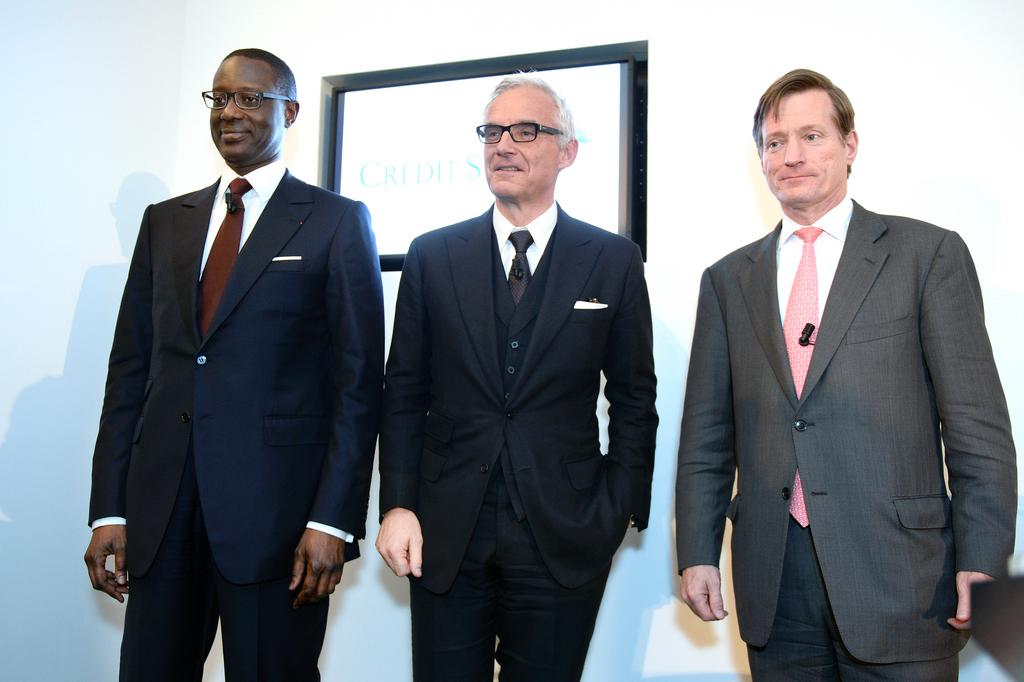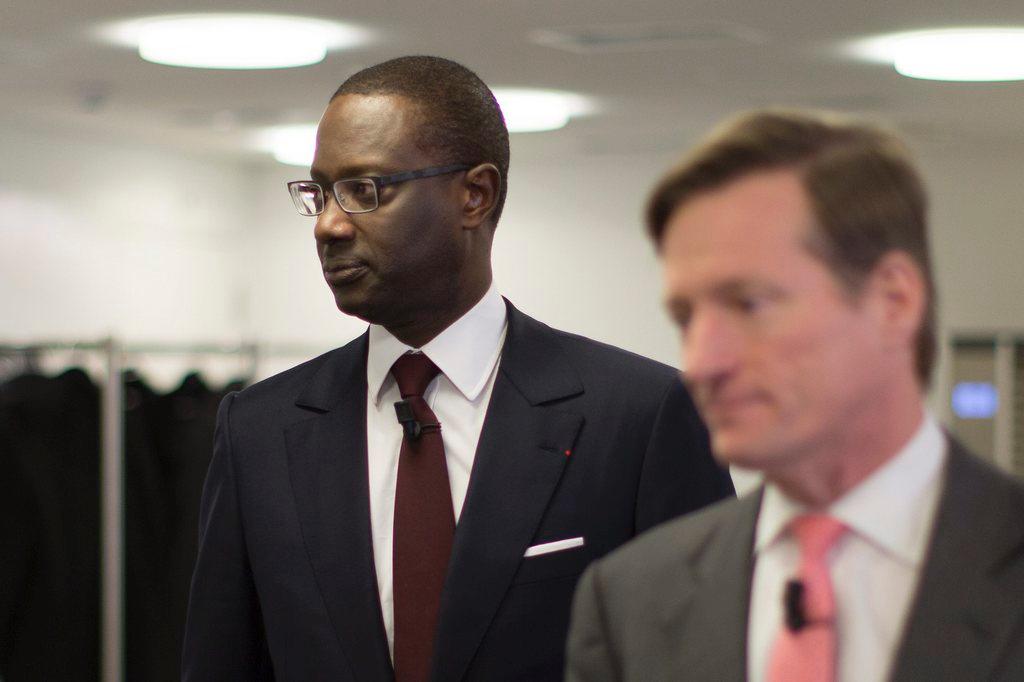Credit Suisse’s top tier set for shake-up

Tidjane Thiam is expected to waste little time in building a top team around him when he starts as chief executive of Credit Suisse at the end of June.
Several senior managers are likely to follow Brady Dougan out of the door after he hands over to Mr Thiam, according to Credit Suisse executives, investors and headhunters.
One senior banker at Credit Suisse predicts a cultural switch from a leadership drawn from traders to more client-focused executives. “Brady is a very shy guy,” says the banker. “He is a trader who never really met clients. This place needs more clarity and focus on clients. The obvious way to achieve that is to change the people at the top.”

More
Financial Times
External linkThe process of overhauling the top management of Switzerland’s second-biggest bank by market value and hiring Mr Thiam’s key lieutenants is anticipated to take months.
But he may be able to fill some key roles with trusted long-term colleagues in the shorter term. Among them, say friends, is almost certain to be Pierre-Oliver Bouée, his right-hand man and current Prudential chief risk officer, who he has worked with over three decades, first at McKinsey, then at Aviva and latterly at the Pru.
Shareholders have been restless with Credit Suisse’s top echelons for some time. Some criticism has focused on Urs Rohner, chairman, who is accused of not acting quickly enough to address the recent underperformance and of lacking independence as a former executive at the bank. His term on the board expires this year. David Mathers, the bank’s British chief financial officer, may be another who jumps or is pushed as part of the clear-out, say people familiar with the situation.
Insiders and outside commentators expect the unusual three co-head structure at the top of the investment bank – and the men filling the roles – to go. “I would think that is exactly the sort of thing that Tidjane will want to clarify,” says a headhunter.
Gael de Boissard, the fixed-income representative on the troika, is seen as too close to Mr Dougan to survive. And though equities chief Tim O’Hara and advisory boss Jim Amine are seen as credible divisional heads, Mr Thiam is widely expected to parachute in his own man to lead a new investment banking strategy. “It is extremely obvious that the three of them wanted to be chief executive and they all need to go now,” says the senior Credit Suisse banker.
Mr Thiam is expected to drive a change in the culture of the investment banking operation, making it more client-focused and subservient to the wealth management operation. “Brady just wanted to look at the quarterly numbers. He never wanted to do client meetings,” says one senior executive in London. “That was a problem.”
The wealth management leadership duo of Hans-Ulrich Meister in Switzerland and Robert Shafir in the US will also be reviewed, with some expecting Mr Thiam to bring in an Asian wealth management expert to lead it.
At a press conference in Zurich this week, Mr Thiam dismissed any concerns about his lack of investment banking experience, citing his years in consultancy and saying: “I’ve reorganised many investment banks in my career.”
Moreover, he doesn’t doubt his ability to understand the finer points of investment banking. “I’ve studied physics and maths; the maths behind derivatives are a relatively primitive version of that,” he said. “There is nothing that I don’t understand in investment banking.”
However, rival bankers warn that Credit Suisse cannot simply mimic the strategy of UBS, its bigger crosstown rival, which has won praise from investors since restructuring its investment bank three years ago.
While Credit Suisse’s incremental cuts to the investment bank have reduced its assets by about a quarter, it is still much bigger than UBS’s equivalent operation and its focus on trading high-yield debt and leveraged loans make it more capital hungry.
Rivals say that to shrink in a capital efficient way Mr Thiam will need to reduce loan and derivative inventories and swap its equities business away from prime brokerage into cash and derivatives. “It’s possible but it takes time,” says one.
Insiders say Credit Suisse’s wealth management arm, where revenues fell 2 per cent last year, is underperforming compared with UBS in recent years. “UBS has been growing its private bank, Credit Suisse hasn’t,” says one.
Dealmakers are already speculating that to rebalance away from the investment bank, which consumes more than half of the group’s capital but generates a smaller amount of its profits, Mr Thiam may be tempted to expand its private bank through an acquisition.
Credit Suisse has been among the bidders for Coutts International – the overseas operations of Royal Bank of Scotland’s private bank. There have also been persistent rumours about a tie-up with Julius Baer, although its Swiss rival’s high valuation and SFr10bn market capitalisation may make a deal prohibitively expensive.
Having been bruised by his failed $35bn bid for rival insurer AIA soon after taking over at the Pru in 2009, observers reckon Mr Thiam is likely to shy away from any ambitious takeovers – at least for the first few months.
Copyright The Financial Times Limited 2015

In compliance with the JTI standards
More: SWI swissinfo.ch certified by the Journalism Trust Initiative










You can find an overview of ongoing debates with our journalists here . Please join us!
If you want to start a conversation about a topic raised in this article or want to report factual errors, email us at english@swissinfo.ch.